Thunderstorms continue to be one of the most prominent natural disasters throughout Georgia. Depending on your area of residence, Georgia sees rainfall on a year-round basis. Typically caused by severe storm systems unleashing vast amounts of rain over a short period, flash floods often appear without warning signals. Floodwaters surge downhill, leaving rural areas and cities vulnerable to significant damage. Read on to learn what to do if your car gets stuck in floodwater.
 What to do if you encounter flood waters while driving
What to do if you encounter flood waters while driving
Flood warnings often are typically only broadcast once the flooding has already begun. If you observe flood warnings while driving, your most urgent priority should be getting out of your car and finding higher ground on foot. If this is not an immediate option, remember to remain calm and avoid panicked thoughts.
Unfasten your seatbelt, unlock your car doors, then engage your hazard and headlights as a signal, alerting emergency personnel of your location. Slowly open the windows and, if able, crawl out of your car. If you are unable to open the windows, you will need to wait for the water pressure to stabilize before being able to use the door to escape.
Once you can exit the car, swim to safer grounds as soon as possible and immediately call 911 if there is no one to assist you. Finding dry land as quickly as possible is crucial because even 6 inches of moving water can be powerful enough to knock many adults over.
What not to do if your car gets stuck in floodwater
First and foremost, do not panic. Take a moment for a deep breath, and try not to burn precious energy on distressed or frightened thoughts. Forget about valuable possessions inside the car and save that 911 call for once you’ve found dry land. Your total focus should be centered entirely on your safety at this moment. If you attempt to break open your car window before the water pressure has yet to equalize, broken glass can flow inwards toward you or your passengers.
Once you have safely exited the vehicle, immediately find higher ground. If you believe water levels have dropped to manageable levels, do not return to your car because flood waters could rise again without notice.
 Can you avoid getting stuck in floodwaters?
Can you avoid getting stuck in floodwaters?
Residents throughout the low country or those living near large bodies of water are especially at risk for flooding in their communities. Your safety is paramount if your town is experiencing a flood, and no one is longing to be behind the wheel of an automobile in the middle of a disaster. However, proper preparedness can help you keep your wits under pressure and survive a flood in your car.
Avoid large pools of water on the road if you suddenly find yourself caught in a flood or flash flood, as gauging the depth of water on the street is nearly impossible, especially at night. A 6-inch puddle of water can result in power loss and costly damage to your vehicle, while waters 1 to 2 feet deep are powerful enough to jettison most cars from the road. This guide examines the valuable safety measures you can take to prepare yourself better if you are caught by surprise by flooded waters while driving.
Car Repairs And More At T3 Atlanta
In theory, we can all avoid a flood by keeping up with daily weather forecasts, but flash floods are erratic and hard to predict. Knowing your car is prepared for harsh weather conditions can instill valuable peace of mind while behind the wheel. T3 Atlanta has kept Lexus, Infiniti, Nissan, and Toyota drivers safely on the road since proudly opening our doors in 1994. Make an appointment by giving us a call today!
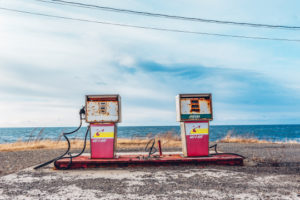 Water Contamination
Water Contamination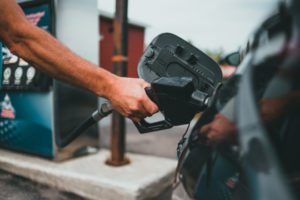 What do I do with a tank full of bad gas?
What do I do with a tank full of bad gas? What is an extended warranty?
What is an extended warranty? Why an extended warranty may not have you covered
Why an extended warranty may not have you covered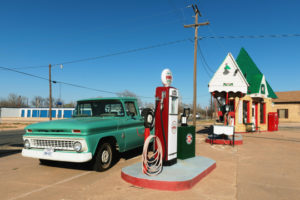 1. Take a Pass on ‘Premium’ Gas
1. Take a Pass on ‘Premium’ Gas 5. Keep cool naturally
5. Keep cool naturally There are several reasons why people might prefer to buy a used car rather than a brand new one. Used vehicles are often significantly cheaper than new cars and may come with additional features that would be expensive to add to a new car. For example, a used car might already have GPS installed, while a new car would require the purchase of an aftermarket GPS. In addition, used vehicles may have been broken in by their previous owners, which can make them more comfortable to drive.
There are several reasons why people might prefer to buy a used car rather than a brand new one. Used vehicles are often significantly cheaper than new cars and may come with additional features that would be expensive to add to a new car. For example, a used car might already have GPS installed, while a new car would require the purchase of an aftermarket GPS. In addition, used vehicles may have been broken in by their previous owners, which can make them more comfortable to drive.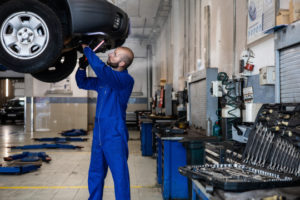 4. Maintenance Records
4. Maintenance Records Collision With Small Rocks or Debris While Driving
Collision With Small Rocks or Debris While Driving If your windshield cracks, it’s important to take action right away. First, if the crack is small, you may be able to have it repaired. However, if the crack is more significant than a dollar bill, or if it’s in your line of sight, you’ll need to have the windshield replaced.
If your windshield cracks, it’s important to take action right away. First, if the crack is small, you may be able to have it repaired. However, if the crack is more significant than a dollar bill, or if it’s in your line of sight, you’ll need to have the windshield replaced. 1. Good Customer Service
1. Good Customer Service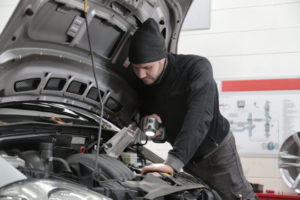 4. Qualified Staff
4. Qualified Staff What Is Car Sickness and What Causes It?
What Is Car Sickness and What Causes It? 5 Ways to Prevent Car Sickness
5 Ways to Prevent Car Sickness 1. Learn the Rules of the Road
1. Learn the Rules of the Road 3. Practice Driving in a Safe and Controlled Environment
3. Practice Driving in a Safe and Controlled Environment 1. Awareness
1. Awareness 4. Patience and Courtesy on the Road
4. Patience and Courtesy on the Road







